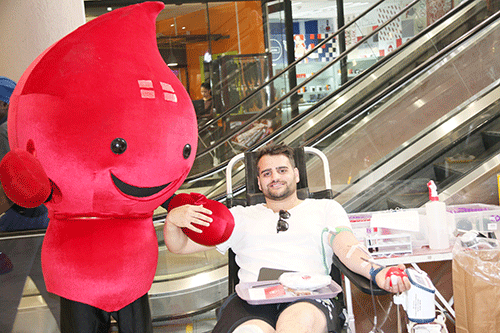The Blood Transfusion Service of Namibia (NamBTS) is currently experiencing a critical shortage of blood.
The team has been hosting blood donation clinics to help rebuild the blood reserves for hospitals around the country.
NamBTS has observed significant increases in blood transfusions for patients since the beginning of September, coupled with low intake at various blood donation drives over the preceding two months.
The reserves have dropped to five days’ blood stock and O-positive and O-negative blood types being the most affected.
“This means that blood banks and hospitals in the country only have sufficient blood that will last for a minimum of five days if no significant further blood collections are made,” stated NamBTS’ spokesperson, Titus Shivute.
He said this is a critical situation.
“We are appealing to all donors especially those with the O type blood, to donate immediately to help ensure that lives are saved this festive season… With only 1% of the Namibian population donating blood annually, we need the assistance of more Namibians of all blood types to donate blood and help save the lives of patients in hospitals and medical centres around the country. We would like to invite all active, dormant, or first-time donors to donate blood at the blood donation clinic,” he said.
According to NamBTS, donations taken will help save the lives of patients such as mothers who bleed excessively during childbirth, cancer patients as part of their treatment, and very importantly now that the festive season is fast approaching: patients who are involved in trauma incidents and those who require various surgeries.
“Basic donor criteria are that you should be between the ages of 16 to 65, weigh more than 50kg, be medically healthy, lead a safe lifestyle, and be committed to helping others,” said NamBTS.
The World Health Organisation (WHO) recommends that all blood donations should be screened for infections before use including screening for HIV, hepatitis B, hepatitis C, and syphilis. Blood screening should be performed according to quality system requirements.


